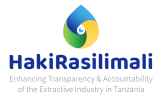Key objective for the workshop:
- Building collective understanding on the role of CSO in EITI process.
- To identify challenges and opportunities for joint action around EITI.
- To enhance knowledge on beneficial ownership (BO) concept.
Key issues addressed during the induction included:
I. WHAT WERE THE LIMITATIONS THAT HINDERED CSOS REPRESENTATIVES IN THE PREVIOUS TEITI MSG?
Experiences from the previous TEITI MSG term were shared by the exiting MSG members and proxies. Overall the workshop participants noted the following:
- Lack of coordination mechanism, communication and consultation between Principals and proxies hindered sharing of information on the MSG-EITI deliberations.
- Failure to define clearly the roles of the Principal and Alternates and how they could work together.
- Weak report dissemination and absence of shared analysis made it difficult for the constituency members to be involved. The participants noted the need to package the reports in ways that the beneficiaries can understand the messages.
- Inadequate resources including technical, material and financial affected capacity building efforts.
- TEITI felt like a new agenda to the new representatives nominated in 2012 due to absence of orientation or capacity building plans.
II. EXPECTATIONS FOR THE NEWLY APPOINTED CSOS REPRESENTATIVES TO THE 3rd TEITI MSG
These were summarized as follows:
- Desire to strengthen and improve the capacity of the new TEITI-MSG CSOs representatives to effectively engage with other stakeholders for the better management of the extractive resource.
- Having a collective advocacy position for the common good and public interest.
- Developing critical thinking and technical competency so as to be able to challenge false assumptions and beliefs regarding natural resources as a CURSE.
- Developing an understanding of the public and private sector priorities regarding socio-economic justice and demand for ethical governance, transparency and accountability.
- Building a collective vision through strong CSO identity and purpose in the EITI process
- Engaging in knowledge building and to act as link between MSG to the broader public
- Ensuring that gender issues are mainstreamed in policies, legal frameworks and structures in the extractive industry
- Identifying a clear scope of joint work for CSO representatives for the next 3 years
- Dissemination and analysis of TEITI that will benefit the local communities affected by extractives.
III. WHAT SHOULD BE THE KEY ROLES OF EITI?
- Creates neutral space for building trust and facilitating discussions on extractive sector policies
- Linking EITI to broader national policy debate and development priorities
- Identification of concerns and gaps in public information around the extractives.
- Enable public to understand the reports and promote policy debates based on analysis of the information.
- Increase accountability and accountability within the sector
For more information on the Induction Workshop, click this link to download the PDF minutes document.



